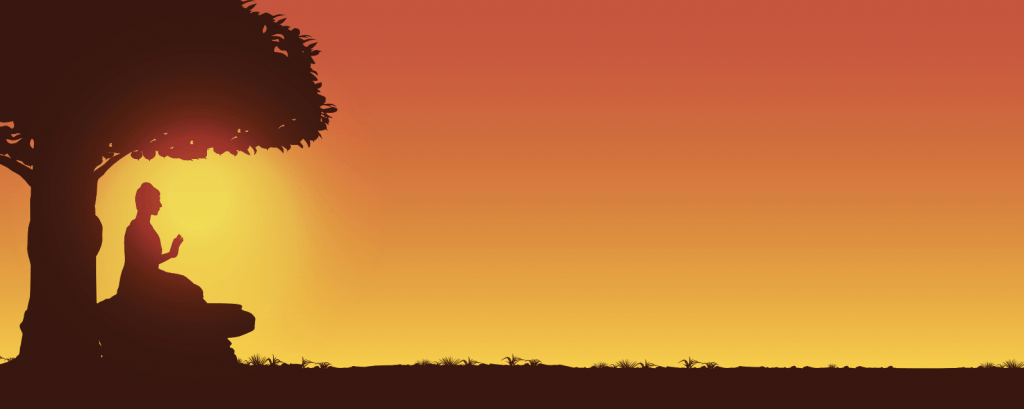SIDDHARTHA GAUTAMA: THE BUDDHA
The founder of Buddhism, Siddhartha Gautama, lived from 566 to 480 B.C. Son of an Indian king, Gautama led an extravagant life through early adulthood, immersed in the privileges of his social caste. But when he got bored of the indulgences of royal life, he wandered into the world in search of understanding. After encountering an old man, an ill man, a corpse and an ascetic, Gautama was convinced that suffering lay at the end of all existence. He renounced his princely title and became a monk, depriving himself of worldly possessions in the hope of comprehending the deep truth of the world aroundhim. The culmination of his search came while meditating beneath a pipal tree, in Bodhgaya, where he finally understood how to be free from suffering, and ultimately, to achieve enlightenment.
The Four Noble Truths
This is the essence of the Buddha’s teachings. There is suffering, there is a path that causes of suffering, there can be a state free of suffering, and there is a path leading to the end of suffering. Simply put, suffering exists; it has a cause; it has an end; and it has a
way (the eightfold path) to bring about its end.
The Eighfold Path
The Fourth Noble truth charts the method for attaining the end of suffering, known to Buddhists as the Dharma, the Noble Eightfold Path. The 8 steps are Right Understanding, Right Thought, Right Speech, Right Action, Right Livelihood, Right Effort, Right Mindfulness and Right Concentration.
The Law of Karma
Contrary to what is accepted in contemporary society, the Buddhist interpretation of karma does not refer to preordained fate. Karma refers to good or bad actions a person takes during her lifetime. Good actions, such as generosity, righteousness and meditation, bring about happiness in the long run. Bad actions, such as lying, stealing or killing, bring about unhappiness sooner or later. The weight that actions carry is determined by five conditions: frequent, repetitive action; determined, intentional action; action performed without regret; action against extraordinary persons; and action toward those who have helped one in the past.
The Cycle of Rebirth
Karma plays out in the Buddhism cycle of rebirth. There are six separate planes into which any living being can be reborn — three fortunate realms, and three unfortunate realms. Those with favorable, positive karma are reborn into one of the fortunate realms: the realm of demigods, the realm of gods, and the realm of men. While the demigods and gods enjoy gratification unknown to men, they also suffer unceasing jealousy and envy. The realm of man is considered the highest realm of rebirth. Humanity lacks some of the extravagances of the demigods and gods, but is also free from their relentless conflict. Similarly, while inhabitants of the three unfortunate realms — of animals, ghosts and hell — suffer untold suffering, the suffering of the realm of man is far less.
The realm of man also offers one other aspect lacking in the other five planes, an opportunity to achieve enlightenment, or Nirvana. Given the sheer number of living things, to be born human is to Buddhists a precious chance at spiritual bliss, a rarity that one should not forsake.



